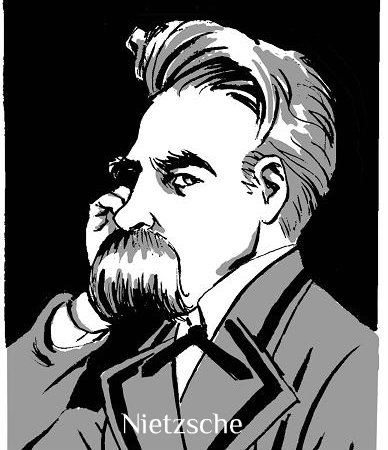Why the philosopher went mad
Jul 29, 2012

.
—Calvin Luther Martin (Autumn 2001)
Nina’s at the hospital discharging a 15-year-old abducted from home, driven at knife-point to a remote spot, raped then stabbed over and over. Finally pushing her out of the car, naked, bleeding, by the side of the interstate. Spotted there by a truck driver who called the police.
She’s in the hospital, recovering.
Though of course she won’t recover for years. Cuts and broken facial bones will heal soon enough. The soul won’t heal so easily.
I write about humanity and humanness—and then, this. Here. On my telephone. This child. A fellow man (literally) does this to a child.
I am not angry at him; I am uncomprehending. I am left wondering how such a person is molded. I am not a man of morality; morality is a late-comer in human consciousness. I am a man of something older, more important that morality: the gift. The gift and grace.
Where is the gift and grace in this? In this man’s psyche, his soul, his mind? He suckled it at his mother’s breast, and then what?
This is hard. I remember Friedrich Nietzsche, son of a minister, the philosopher who wrote volumes about what it means to be human. Study his photographs and you see an intense man. One day he witnessed a man, a tradesman, whipping his horse as it drew his cart. The philosopher ran out, drove the man off, and embraced the horse—and his mind simply snapped. Like a twig: snapped in two. The incident was a trigger; from then on Nietzsche was an incoherent madman.
When does one’s mind snap apart because of stories of a man raping, cutting, discarding a 15-year-old girl?
A difficult question. Walt Whitman offers the best response: “I am the man … I suffered … I was there.” I am the girl and I am her assailant. I am both. I am compassion; I am grace. I am the gift. I am healing—healing the girl, the man, and healing myself. That is all.
This man was at one time a child; a mother loved him for awhile, at least. (Or perhaps not, for that too is possible.) Still, he was a boy. Then a teenager. I have a son who became a teenager who became a young man. I have seen my child grow. Perhaps I could have watched that child, the rapist, grow into a festering sore.
No, I don’t detest him; what I am is uncomprehending of the paradigm that produced him. It’s as though the stream whose patient current carves the soul into the shape of compassion—as though that stream has abandoned some people, or perhaps been unavailable to them. What then grows is a monster of tissue in human form.
Where did that creator of genuine human life go? That creator that is grace and the gift, I mean? It was there for me when I was a child and it has been with me ever since, but where was it for him? And many like him?
I sometimes understand why the philosopher went mad.

Comment by mike eaton on 07/30/2012 at 1:12 am
All men are capable of doing evil deeds. It is he who lives in us that keeps us from it.
Mike
Comment by Barry FUNFAR on 07/30/2012 at 9:29 am
The human mind is capable of all, any conceivable thought or action. So some of the people become moral and ethical and others become the monsters of the world.
I’ve heard people say “I could never do that.” They may believe themselves but I believe they just are naive to reality. Go to war as a 19 year old and see what that does to your ideas about the nature of humans.
Comment by preston mcclanahan on 07/30/2012 at 10:57 am
How could I submit one of my drawings?
Those of us who are given a positive gift must develop it and share it perhaps to perpetrate the gift and grace.
Editor’s reply: We would love to feature your drawings! Send them as a high definition JPEG to the email address shown in “Contact.”
The point of this category, “Reflections on Being Human,” is simply to inject normal, day-to-day humanness and humaneness (notice the difference) into the never-ending horror story of wind turbines. Many of people reading this site suffer from WTS, a devastating illness. Not only suffer the illness, but not a few have been forced to leave their homes. A double whammy! Oh my god!
I offer these short essays, these riffs, in the spirit of healing and grace. My inspiration was Viktor Frankl, Nazi death camp survivor.